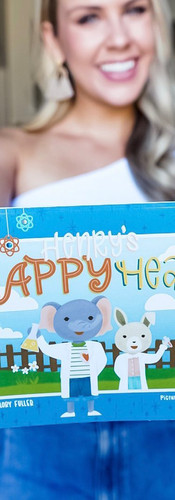Parent Resource Guide
- Mallory Fuller
- Mar 10, 2021
- 3 min read
The number one question I get when I speak on suicide prevention is, “How can parents help?"
I believe this question is one of the most important ones for us to address. I began mentoring a group of 8th-grade girls last year, and after spending some time with them, I started to see the mental health issues that are running rampant in today's teens on a personal level. One of the most heart-wrenching things to hear them say is that they don't know how to open up to their parents.
I know that the stress and pressure of being a parent is one that I can’t comprehend. Every parent wants what is best for their child, but there are so many resources available that it is hard to know where to begin or how to help. I have put together this resource guide to take out the guesswork! Whether you are wanting to open a conversation with your child, or are concerned that they are in imminent danger, there is a resource for you.
Whether you are wanting to open a conversation with your child, or are concerned that they are in imminent danger, there is a resource for you.
First and foremost, there is a myth I want to address, and I cannot stress this enough: asking your child if they are considering suicide will not make them commit suicide or give them “ideas.” Asking this question allows them an outlet to talk about what they are going through without fearing the reaction they may get from saying they are having suicidal thoughts. Having real and open conversations about suicide is the first step in prevention and we have to get comfortable with it. If you think your child may be struggling with suicidal thoughts, do not be afraid to ask them about it. Below are some incredible resources that can help you and your child through this time. All of the pictures below serve as links to their designated websites so feel free to explore!
Jason Foundation Parent Resource Program
I can personally attest to the work that the Jason Foundation is doing daily to save the lives of children and teens across the nation. This page includes a wealth of knowledge from different resources, a parent seminar, as well as do’s and don’ts.
Just Between Us
This journal for moms with teen daughters is brilliant! I love this resource because it allows young girls to open up to their mom about something they may be struggling with, without having to start that hard conversation. It gives moms and daughters the time and space to fully give their heart to the topic at hand and allows for deeper conversations to evolve.
notOK App®

notOK App® is a free digital “panic button” to get you immediate support via text, phone call, or GPS location when you’re struggling to reach out. According to noOK, "Depression and anxiety inhibit a person's ability to ask for help. Making it THIS easy IS necessary for many people.” I love this app because it takes the hardest part out of asking for help. Many times young people fear bringing up the conversation because they don’t know how their parents will react. Allowing the conversation to be shifted from the child to the parent takes the burden off of a child who may be struggling.
Henry’s Happy Heart

Henry’s Happy Heart is a children’s book I wrote and published with the intention to start a conversation around mental health for kids! As the author, I truly believe that the key concepts included in this book are vital for children to learn and understand. Henry’s Happy Heart stresses the importance of goal setting, speaking with trusted adults about our feelings and emotions, and building good friendships. Henry’s Happy Heart is a perfect addition to classrooms, school libraries, and homes with young readers.
These next two resources are for anyone who wants to learn more about suicide among teens. Whether you think your child may be struggling, you want to know what signs to look for, or you just want to be more informed, these information sheets are a world of knowledge.
Lastly, these are two resources that I pray few of you to have to use. If you believe your child may be in imminent danger, call 911. If a child has expressed their concerns and made a cry for help, PLEASE believe them and find the help they need immediately. Below I have direct links to the Substance Abuse and Mental Health Services Administration (SAMSHA) treatment finder and the suicide prevention lifeline (800-273-8255).
I am so thankful that you have taken the time to review these resources. Knowing what to do and where to go to help could make all the difference in the world for your child. With the right knowledge and resources, we can prevent suicide.















